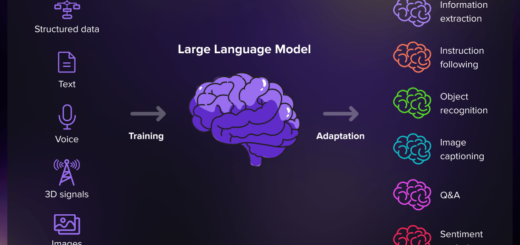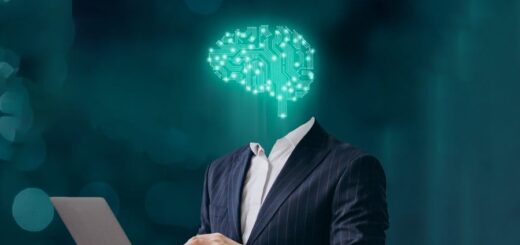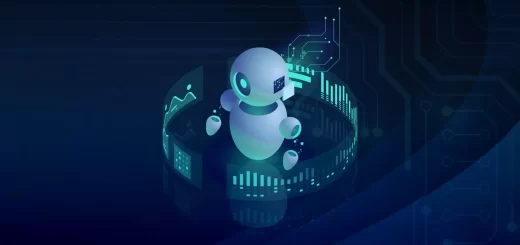Adapting to the Age of AI-Driven Intelligence

The rapid evolution of artificial intelligence has redefined the boundaries of what machines can accomplish. While AI was once confined to performing narrow, well-defined tasks, it is now becoming an integral part of decision-making, problem-solving, and even creative thinking. The transition from rule-based automation to AI-powered intelligence is shaping a new reality where systems can analyze, learn, and adapt with minimal human intervention.
Organizations, researchers, and even individuals are now faced with a pivotal shift: How do we adapt to a world where AI is not just a tool, but a collaborator? Businesses are redesigning strategies around AI-driven insights, scientists are leveraging machine learning for breakthrough discoveries, and even creative professionals are exploring AI-assisted innovation. The challenge is no longer whether AI should be used—it’s about how we integrate AI effectively while maintaining control, ethics, and reliability.
This article examines the emerging trends in AI intelligence, how industries are reshaping their operations around it, and the obstacles that must be addressed to fully harness its potential.
A New Form of Intelligence
For decades, AI systems have relied on explicit programming and structured data, but the landscape has shifted. The emergence of self-learning AI models has enabled systems to identify patterns, adapt dynamically, and even propose solutions without predefined rules. This marks a departure from traditional computing paradigms, allowing AI to function as an intelligent partner rather than just a processing tool.
Consider how modern AI differs from previous generations:
- From static to adaptive: Older AI models followed strict, rule-based commands, whereas today’s AI continuously learns from new data, user interactions, and real-world environments.
- From prediction to reasoning: AI is evolving beyond making simple predictions to understanding context, detecting causal relationships, and offering strategic insights.
- From automation to augmentation: Rather than replacing human intelligence, AI is augmenting it—enhancing human decision-making, creativity, and productivity.
These capabilities are being adopted across industries, transforming finance, healthcare, logistics, education, and beyond.
Industries Reshaping Themselves Around AI
As AI intelligence grows more sophisticated, businesses and researchers are leveraging its potential in ways that go beyond efficiency gains and into strategic transformation.
1. AI in Business Strategy and Operations
- Companies are integrating AI-powered decision systems to assess risks, predict market trends, and optimize pricing strategies in real time.
- AI-driven analytics platforms are providing dynamic supply chain insights, allowing businesses to respond to demand shifts instantly.
- AI-powered customer experience solutions are personalizing interactions at an unprecedented scale, anticipating customer needs before they arise.
2. AI in Scientific Research and Discovery
- AI-driven simulations are accelerating drug discovery, predicting chemical interactions faster than traditional laboratory experiments.
- Scientists are using machine learning models to analyze astronomical data, genomic sequences, and climate patterns, revealing insights previously hidden in vast datasets.
- AI is aiding in renewable energy innovation, optimizing solar and wind power generation based on environmental conditions.
3. AI and Human Creativity
- AI-generated art, music, and literature are challenging the notion that creativity is uniquely human.
- Tools powered by natural language processing and deep learning are assisting writers, designers, and filmmakers in generating new ideas and refining their work.
- AI is helping musicians compose harmonies, allowing for human-AI co-creation in an entirely new way.
As AI expands its role, industries are being forced to rethink traditional workflows, redefine human roles, and establish new ethical frameworks.
Challenges in AI’s Expanding Role
While AI intelligence brings remarkable advantages, it also raises fundamental concerns. The more we integrate AI into daily life, the more critical it becomes to address these challenges.
1. Explainability and Trust
- AI models often function as “black boxes,” making decisions that even their creators struggle to explain.
- Without clear reasoning behind AI-driven outcomes, trust in AI-powered systems can erode, especially in high-stakes fields like healthcare and finance.
- Researchers are focusing on explainable AI (XAI) techniques to ensure that AI-generated insights are transparent and interpretable.
2. Ethical Concerns and Bias
- AI models trained on biased data can reinforce and even amplify societal prejudices, leading to discriminatory hiring practices, lending policies, or judicial decisions.
- Ethical AI development requires constant monitoring, diverse training datasets, and governance frameworks to prevent unintended biases.
3. The Future of Work and Human-AI Collaboration
- As AI takes over more cognitive and decision-making tasks, concerns about job displacement and economic disruption continue to grow.
- The shift should not be framed as “humans vs. AI” but rather as a redefinition of work, where AI enhances productivity and humans focus on strategic, creative, and interpersonal tasks.
By addressing these challenges proactively, we can ensure that AI intelligence serves as an empowering force rather than a disruptive one.
The Road Ahead: What’s Next for AI?
AI’s role in intelligence and decision-making is still in its early stages, but several key trends will define its trajectory:
- Autonomous AI Agents: AI systems will move beyond recommendations to autonomous execution, handling business transactions, legal processes, and even research independently.
- Human-AI Synergy: AI will not replace human intelligence but will integrate more seamlessly into professional and creative workflows.
- AI-Driven Scientific Breakthroughs: AI will continue to be at the forefront of medical, environmental, and materials science discoveries.
- Ethical and Regulatory Frameworks: Governments and organizations will develop AI governance models to ensure ethical and fair deployment.
With careful design, transparent oversight, and continued innovation, AI will not just augment human intelligence—it will redefine what intelligence means in the modern world.
Final Thoughts: Preparing for an AI-Driven Future
AI’s evolution into an intelligent collaborator rather than a simple computational tool is already shaping our world in profound ways. From business strategy to scientific breakthroughs, from automation to creativity, AI is redefining how we think, work, and innovate.
However, this transformation is not without risks, and ensuring ethical AI, transparency, and inclusivity must be a priority. The organizations and individuals that embrace AI while maintaining human oversight and ethical responsibility will be the ones that lead in this new era.
AI is no longer the technology of the future—it is the intelligence shaping our present. The question is no longer whether we should use AI, but how we can use it responsibly to unlock its full potential.




